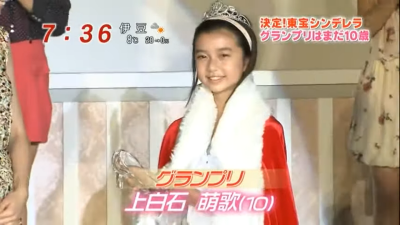
The Movie "Koko"
Supporters' Podcast



Main
Old Updates Archive
Links
 |
Lists |
List of Pokemon
Pokemon World Atlas
List of Techniques
List
of Items
List of TV Episodes
 |
Guides |
Episode
Comparisons
Movies
& Specials Guide
CD Guide
DVD Guide
Voice
Actors Guide
Lyrics Archive
Manga Guide
Video Games
 |
Miscellaneous |
Humor
Pokemon Bashing
Features
Rants
Dogasu's
Backpack
| Movies & Specials Guide | Koko

The tenth and final episode of Pocket Monsters The Movie "Koko" Supporters' Podcast - "The Movie Secrets We Want to Tell You" (劇場版ポ ケットモンスター ココ -サポーターズPodcastーいま、君に伝えたい映画のヒミツ) was released on Friday, December 25th, 2020.
You can listen to the podcast here, though do be aware that the episode is completely in Japanese.
Host: Mr. Hisanori Yoshida (吉田尚記)
Special Guest: The voice of Koko, Ms. Moka Kamishiraishi (上白石萌歌)
The voice of Zarude, Mr. Kankuro Nakamura (中村勘九郎)

The tenth and final episode of Pocket Monsters The Movie "Koko" Supporters' Podcast - "The Movie Secrets We Want to Tell You" (劇場版ポ ケットモンスター ココ -サポーターズPodcastーいま、君に伝えたい映画のヒミツ) was released on Friday, December 25th, 2020.
You can listen to the podcast here, though do be aware that the episode is completely in Japanese.
| Release / General Information |
| Release Date |
December 25th, 2020 |
| Runtime | 36 minutes, 39 seconds |
| Episode Link |
Listen
to the episode here |
| Cast |
 |
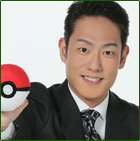 |
Host: Mr. Hisanori Yoshida (吉田尚記)
Special Guest: The voice of Koko, Ms. Moka Kamishiraishi (上白石萌歌)
The voice of Zarude, Mr. Kankuro Nakamura (中村勘九郎)
| Episode Ten |
We've
finally made it! This episode of the podcast will come out on Friday
December 25th,
the same day that Pocket Monsters The Movie "Koko"
makes its long-awaited theatrical debut! This also happens to be the
final episode of the podcast! The
podcast's host, Mr. Hisanori Yoshida, apologizes for the sound quality
this week as well
-- he's having to wear a face
mask while recording, and he's going to have to compete with
the
ventilation fan roaring on in the background -- but
there's nothing he
can really do about any of that. Today is apparently a press day there
in the studio, and all these people have come in from all over to
conduct interview
after interview for the new Pokémon
film. There are cast
members, camera
operators, etc...the large hall they're in is just bustling with
activity! But
it's
actually thanks to this press day that the podcast was able
to secure the
guests
they've called in for today's episode.
Welcome to the Pocket Monsters The Movie "Koko" Supporters' Podcast - "The Movie Secrets We Want to Tell You"! This podcast, which started up in October, takes a look at the rarely talked about production side of the Pokémon movies. They've had a lot of fantastic guests up until now -- the film's director, voice actors, sound directors, one of the film's composers, the director of the film's trailers, executive producers -- and so for this, the final episode of the podcast, they decided to bring in a pair of guests who are perfect for the theme of this final episode. "The movie's out now! The actors behind the stars of this year's film, Zarude and Koko"...that's right! In this tiny little meeting room is the actor who plays Zarude, Mr. Kankuro Nakamura, and the actor who plays Koko, Ms. Moka Kamishiraishi!
Mr. Yoshida is amazed; in this one room they have a pair of prestigious Japanese actors who have been in animation, TV, and on stage! The podcast host then turns his attention to the fact that Mr. Nakamura is wearing a black face mask and a surprisingly formal black suit. Today's a press day, the actor responds, and so he's all dressed up for the occasion, though he does add that his suit at least it has a bunch of little purple Pikachu patterns on it to give it that Pokémon feel. Ms. Kamishiraishi, on the other hand, is wearing what appears to be a very jungle inspired green dress. She also just happens to be sitting on a green sofa, making it look like she coordinated her outfit just for this interview.
The podcast starts the episode by bringing up something surprising he just found out. Mr. Nakamura and Ms. Kamishiraishi play a father and son duo in this Pokémon movie and yet, somehow, today's podcast recording is the first time the two of them have ever been together in the same room! Well, for this particular Pokémon movie, anyway. They had met before while working on the Japanese historical drama Idaten: The Epic Marathon to Tokyo, even though they didn't end up having any scenes together. When it comes to animation voice-over work, however, this film was the first Pocket Monsters film for either one of them. Ms. Kamishiraishi had done one other animated film in the past (Mirai of the Future), at least, but this was Mr. Nakamura's first foray into the world of animation. Suddenly a thought pops into Mr. Yoshida's head; Ms. Kamishiraishi has played young boys in both the animated films she's appeared in, hasn't she? She played a boy in Mirai of the Future and she plays a ten-year-old boy in Pocket Monsters The Movie "Koko" as well. How about that! Ms. Kamishiraishi reasons that her voice not being all that high to begin with makes it fairly easy for her to get those types of roles, maybe. Once she actually gets cast, though...well, that's when the real work begins.
The podcast host then turns to Mr. Nakamura and tells us that this is the first time the two of them have met. "It's nice to meet you," Mr. Yoshida says to his guest. He starts off by asking the actor about a rumor he heard about Mr. Nakamura being a big fan of both manga and girls' idol groups. Is that true? Mr. Nakamura confirms that yup, guilty as charged! He's 39 years old now, and he's been reading Weekly Shonen Jump since the time he was an elementary school student. He used to read each issue cover to cover, even going so far as to read the authors' comments in the back, and so that's what got him into both manga and anime. If you do the math, Mr. Nakamura must have been in elementary school at around that time, so he was probably reading the ultra popular series Slam Dunk back then. Mr. Nakamura confirms that he was -- he used to read it while riding the Tobu Sano Line on his way to and from school when he was a junior high and high school student. All sorts of people were reading Jump on the train back then, from businessmen to students like himself, and he remembers one of the final chapters of Slam Dunk where a character who really didn't talk much (Kaede Rukawa) was forced to go one way, but then when he looked up he saw that Hanamichi Sakuragi was there, and so he made a 45 degree turn and passed the ball to Hanamichi so he could perform the game-winning slam dunk with his left arm. And as everyone cheered the two of them gave each other a high five. That high five scene was a two-page spread and he remembers getting to that part, closing the magazine, and quietly weeping to himself. Mr. Yoshida is surprised to see him get so worked up about this, even today...he really is a huge Slam Dunk fan, huh? Mr. Nakamura adds that he noticed other people on the train weeping when they got to that scene as well.
Mr. Nakamura says he eventually buys the graphic novel collections, of course, but he also prefers the larger size of the weekly magazines and so he ends up buying those as well. Even now? Yes, even now! Mr. Yoshida asks him what series he's enjoying these days, and he responds that one that's really stood out to him lately was Blue Giant. You wouldn't think manga would be a great medium for a music-based story but somehow, he says, he feels like he can actually hear the music being played as he reads the manga.
Now that Mr. Nakamura's had a moment to gush over a bunch of the manga he likes it's time to turn our attention to Ms. Kamishiraishi. Unlike with Mr. Nakamura, Mr. Yoshida has actually met Ms. Kamishiraishi before; in Japan they have this series of open calls set up for aspiring actresses known as the Toho "Cinderella" Audition, a talent competition set up by Toho held roughly every three or four years. The podcast host, Mr. Yoshida, was one of the emcees at the finals the year Ms. Kamishiraishi won, and he remembers interviewing the amazing sister duo -- Moka Kamishiraishi and her younger sister -- from the Kagoshima Prefecture of Japan. Ms. Kamishiraishi thanks the podcast host for everything he did back then; she wouldn't be where she's at today if he hadn't read her name out as the winner back then.
Mr. Yoshida also
mentions how Ms. Kamishiraishi's story from even
before back then is really interesting. She used to live in Mexico, and
then from there went on to appear in a bunch of TV shows and movies,
again and again, until finally she's here now talking about her role in
the newest Pocket Monsters
movie. Everything she's been doing up until now has led to this, in
other words.
Did Ms. Kamishiraishi grow up with Pokémon? As an example, Mr. Yoshida turns to Mr. Nakamura and guesses that he would have been too old to have watched it when he was an elementary school student. The actor tells the podcast host that his guess is right; his younger brother (fellow kabuki actor Shichinosuke Nakamura II) and his future wife (film actress Ai Maeda) would have been the right age, but he himself was a bit older when Pokémon first came out. His younger brother used to bring his Game Boy to kabuki practice with him, and he heard that his wife would take her Game Boy to film shoots as well. So Mr. Nakamura was vaguely aware of Pokémon and just how big a phenomenon it was becoming. When he was a high school student he went and saw the first movie, Pocket Monsters The Movie "Mewtwo Strikes Back!, in theaters, and he remembers thinking how amazing Masachika Ichimura's performance as Mewtwo was in that film. So while he knew what Pokémon was, this first movie was his first direct encounter with the franchise.
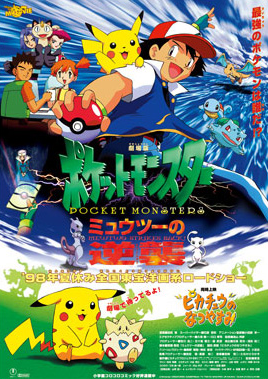
Mr. Yoshida thinks it's interesting to hear from someone who was first introduced to Pokémon when they were a high school student as opposed to first getting into it when they were in elementary school. When he saw Mewtwo Strikes Back!, Mr. Nakamura continues, he thought Mr. Ichimura was just absolutely amazing -- his performance gave Mewtwo's sad story this sort of depth that only a veteran like he could deliver. The podcast host summarizes all this by saying that Mr. Nakamura was first introduced to Pokémon through the movies.
Ms. Kamishiraishi, on the other hand, was really young when she first came into contact with Pokémon. As alluded to earlier, she lived in Mexico from the time she was a first grader up until she was in third grade, and her classmates there in Mexico knew all about Pokémon and Pikachu and all that. The franchise became a sort of shared language between her and her Spanish-speaking classmates, a way for them to become friends with each other despite not speaking the same language. But she did have a Nintendo DS, and so she was able to trade Pokémon with her classmates regardless. The podcast host guesses Ms. Kamishiraishi must have been really popular with the kids at school since she came from the country where Pokémon originated, right? She guesses, but back then she didn't even really understand that Pokémon was a Japanese series. The fact that the main character didn't have a Japanese name like "Satoshi" over there was one reason, but she also recognized Pokémon as this extremely popular thing that everyone knew and so she figured it must have come from the U.S. Nothing that comes from Japan is ever that popular overseas, right? She continues to reminisce, stating that the first movie she ever saw in theaters was a Pokémon movie, she says. It was Pocket Monsters Advanced Generation The Movie "Pokémon Ranger and the Prince of the Sea, Manaphy," and it came out when she was a first grader in elementary school back in 2006. She saw (what she assumed was a Japanese dub of) the movie in Japan, and then a little while later she moved to Mexico. She couldn't believe how big Pokémon was when she arrived in North America; oh, you guys have it over here too?

So this year, Ms. Kamishiraishi got the offer to play the titular character Koko in Pocket Monsters The Movie "Koko." She was actually scared when she first got the offer! Mr. Nakamura laughs in agreement -- he was happy when he got offered the role of Zarude, of course, and as an anime fan he had always wanted to try his hand at doing voice-over work. But at the same time the fact that he liked animation as much as he does put that much extra pressure on him. It's a totally different feeling from doing historical dramas, of which he's also a fan. Ms. Kamishiraishi adds that, similarly, she was happy to get cast but felt nervous because she felt the huge sense of responsibility that comes with being in a Pokémon movie. The podcast host adds that for this movie in particular, the two of them had an even more difficult task than normal because they had to speak both Pokémon language and human language. The actors whose characters only speak Pokémon language -- like Sonansu -- have to work hard to convey their characters' emotions with a very, very limited vocabulary. But both Koko and Zarude have to do that in addition to speaking human language amongst themselves.
Another challenge this time around is that the actors all had to record their dialogue separately because of COVID-19. That's how, as they talked about earlier, they hadn't actually met face to face until this podcast recording. Who recorded first? Ms. Kamishiraishi said that she had Zarude's dialogue to go off of when she recorded so that must have meant that Mr. Nakamura went first. Zarude's voice actor adds that when he went into the recording booth, the other Pokémon's voices had already been recorded by that point. Mr. Nakamura recalls that when he was first in the booth for the pre-tests, he was so amazed to hear the Pokémon actually speaking on the screen in front of him that he missed his cue and they had to start again.
He was also really
amazed by Shoko Nakagawa's
performance and, of course, of the performance of God
himself, Mr. Kouichi Yamadera. Mr. Yoshida
recalls hearing that Mr. Yamadera and Ms. Nakagawa had recorded together.
He also asks Mr. Nakamura about his
"God" comment; does he really hold Mr. Yamadera to such high
regard? He responds by saying that when he was a kid he used to watch
the
Japanese dubbed versions of Hollywood movies a lot. Mr. Yamadera is one
of those
actors whose name keeps popping up in a lot of Japanese dubs of foreign
films and so Mr. Nakamura would
have heard his voice over and over again throughout the years. When Mr.
Nakamura became an adult and
switched to watching the English version with Japanese subs he would
hear actors like Eddie
Murphy or Keanu Reeves -- actors who Mr. Yamadera had been in charge of
dubbing over -- and would be like "huh, these sound a little
bit off." He was so used to seeing Eddie Murphy's face but hearing
Kouichi Yamadera's voice that it was a real shock to hear
what Eddie Murphy actually
sounds like.
Mr. Nakamura would hear actors like Mr. Yamadera and think that they're so amazing, but...Mr. Yoshida thinks the Dada Zarude is really amazing too! Ms. Kamishiraishi agrees. She adds that his performance was so strong that when she heard Mr. Nakamura's voice the first time she thought of him as her father right away. Mr. Nakamura thanks his colleague but admits that he was really nervous. They had to record separately, as they said, and so he was worried about leaving behind a performance good enough that Ms. Kamishiraishi could then use to deliver the best performance she could. Mr. Yoshida marvels at how great Zarude is as a character; Zarude can only speak Pokémon language in the story of the film but, for the audience's sake, large portions of his dialogue are also spoken in human language.
Did Mr. Nakamura go into the booth knowing how he wanted to portray the character? Or did he let the sound director Masafumi Mima decide which direction to take it? Mr. Nakamura credits the film's director, Tetsuo Yajima, and the sound director with shaping Zarude into the character it would become. Mr. Nakamura had the script and so he had an idea of what the character should be, of course, but more than that it was the character design of Zarude that informed the approach he took with the character. Did you have a different idea of what kind of character Zarude would be, Mr. Yoshida asks. Zarude's voice actor responds that the first thing he was told was that Zarude is always on high alert, ready to move at a moment's notice. Ms. Kamishiraishi adds that she was told the same thing about Koko; you never know what's going to happen out there in the jungle so make sure you sound like you're ready for anything. Mr. Yoshida remembers Mr. Mima telling them about this in a previous episode of the podcast -- they're animals out in the wild, he recalls, so they can never relax. Mr. Nakamura adds that he has to sound like he's ready to spring into action at any moment, even in the scenes where it's just him standing around talking.
Mr. Yoshida also recalls Mr. Mima talking about how the jungle setting provides them with a 360 degree space in which to play. It's not just two people talking each other from the same height; there are times when someone will be on the ground talking to someone high up in a tree, or when someone will be shouting at someone way on the other side of the jungle. Did you receive any special directions from Mr. Mima for those scenes? Mr. Nakamura confirms that yes, he did. This was his first time recording animation voice-over work so he took his script and stood in front of the monitor with the animation on it and would try his best to make it sound like there was some distance between him and the character he was talking to. But sometimes it just didn't sound right, and so Mr. Mima would ask him a series of questions. How large is the character you're speaking to? Where is he? What kind of environment are the two of you in during this scene? etc. Mr. Nakamura said the whole thing was a lot of fun, actually. Ms. Kamishiraishi then had to take Mr. Nakamura's performance as a Zarude, who's a wild animal who only lets down his guard for a select few, and act off that.
With Koko, Ms. Kamishiraishi had to play a character who's both a human and a Pokémon, someone who's a sort of a halfway point between the two. It was really tough, she recalls. When she found out that the character she was playing is a human who was raised by Pokémon, she says, she was reminded of those stories of real life boys who had been raised by wolves. Those boys didn't use only words to form bonds with their parents and so she had to think about how to similarly portray this unique relationship. This role isn't something she'd ever be able to do in live action, of course; it's something she can only do because this is an animated film. Mr. Yoshida goes back to the point about the boy who was raised by wolves, adding that this was exactly the sort of thing that Maya Kitajima worried about in the famous manga series Glass Mask. As the others laugh, Mr. Yoshida reasons that Ms. Moka Kamishiraishi is more or less the same as the character Maya Kitajima, though she probably doesn't go to the extremes that the manga character did to prepare for her roles.
So what did Ms. Kamishiraishi do to prepare? Well, she had artwork of the character to go off of, and the script had a lot of detailed notes written throughout -- here's how the character will be moving in this scene, and here's the emotion you should feel at this part, etc -- and so she poured over all that to get a feel for the character. Mr. Yoshida's interviewed a lot of voice actors over the years and one thing he's heard over and over is that anime scripts all have really detailed notes like what she just described. Do scripts for live action productions not contain as many detailed notes? They don't, both Ms. Kamishiraishi and Mr. Nakamura confirm. Mr. Nakamura believes this is because the actors are the ones who decide the visuals of the film, with their movements and facial expressions and whatnot, while with (Japanese) animation the visuals are already pretty much set in stone before they even step into the booth. Having everything decided for you beforehand provides a refreshing and unique challenge, Ms. Kamishiraishi adds. There are some difficult parts to that as well, she admits, but there was also a lot of fun in seeing how simple things like changing your posture can affect the voice that comes out of your mouth. She would try to adopt the same poses Koko took, with his back arched a certain way, to get a performance that made the most sense. There were restrictions to this, of course -- she was in a studio with a microphone set in a certain position, after all -- but she would do things like bend her knees slightly and hunch over as if she's ready to take off at any minute, just like Koko.
Mr. Nakamura is amazed; he did exactly the same thing! They really are like father and son! Mr. Yoshida believes that since Ms. Kamishiraishi recorded her dialogue after Mr. Nakamura recorded his that she learned a lot about the world of Pokémon from Mr. Nakamura's performance, even though the two of them were never in the same room together. Mr. Nakamura continues, saying he was told to stand a certain way by Mr. Mima and that thanks to this direction he was able to create sounds in his character's "default state" that he wouldn't have been able to if he was just standing normally.
Have you sat down and watched Pocket Monsters The Movie "Koko"? Mr. Nakamura answers that he's seen it but that, in principle, he doesn't tend to go back and rewatch the movies and shows he's been in. All that does for him is give him new things for him to nitpick, you know? So instead, he prefers to stand back and see how other people react to his performances. Ms. Kamishiraishi's the same way; whenever she watches something she's been in she always thinks "aw, I should have done this instead of that." Hearing recordings of her own voice was, at first, particularly difficult. But she also recognizes that she's just one part in this bigger production and so she wants to watch the movie a second time to really take in everyone else's performance without being hyper-focused on the work she herself did.
They have an idea of what moments in the story are supposed to make people cry and which parts aren't, right? Ms. Kamishiraishi says that yes, of course they do. Mr. Yoshida adds that this is one of the great things about Japanese animation; the actors and other artists involved all know exactly what buttons to push to control the audiences' emotions as the film goes on. OK, this is the part where we want them to cry, so we'd better give it our all. Kabuki stage plays are probably very similar, he adds.
One of the strange things about Pokémon, Mr. Yoshida continues, is that it's able to evoke such strong, realistic emotions out of people even though it's about as far away from reality as you can get. He also figures that the two actors there are all cried out after working on this movie, right? Mr. Nakamura says that's not the case; he still cried when he saw the movie earlier. He can't give too much away because he knows there are people listening to this podcast who haven't seen the movie yet, but there's a part in the movie where Koko does something to help his Dada and Koko's facial expressions, combined with the scream Ms. Kamishiraishi's Koko gives out from deep within, really moved him to tears. Ms. Kamishiraishi adds that doing that scream made her voice give out. She adds that she recorded that while her voice was strained but that it actually ended up helping her performance because, as a woman, there are certain vocal strains and growls that she had to deliver that she wouldn't have been able to if she was at 100%.
Moka Kamishiraishi also tells the others about something Mr. Mima said to her that really stood out: "Girls tend to get angry from their heads while boys tend to get angry from their gut" (女の子は頭で怒って、男の子は腹で怒る). Mr. Yoshida reacts to this statement with a "woah..." Ms. Kamishiraishi thought this was brilliant and so when she was in the booth she tried lowering her center of gravity and letting out her anger from her belly. When she did all this, she found that the voice she produced was so different from what she usually does that she couldn't believe she was the one making it! Ms. Kamishiraishi is very thankful for the guidance Mr. Mima gave her; she wouldn't have been able to deliver the performance she did without it! She figures that Mr. Mima should get credit for about 50% of the way Koko's voice turned out.
It's now about time to wrap up this episode so Mr. Yoshida asks his guests to give them a comment for the listeners who have seen the movie and for those who haven't seen it yet:
Kankuro Nakamura: "Kids have been growing up with Pokémon for the past 23 years, and for some kids this will be their first Pokémon movie ever. And this time around the story is one about the bonds between parents and...well, I have kids of my own, you see, and while I know what brings us together this movie gave me a chance to re-examine those bonds...and so I think this is a nice, well-done film. Also, even though 23 years have passed, I think Satoshi is a really cool kid. He's cool, he never gives up, and that's why Pokémon gather around him -- and humans as well...everyone gravitates toward him and I think you'll see that in this movie as well."
Mr. Yoshida says that Rica Matsumoto touched upon that point on this very podcast -- he encourages his guests to listen to that episode.
Next up are Ms. Kamishiraishi's comments:
Moka Kamishiraishi: "When I first saw this movie I thought that, on the whole, it really is a film aimed at adults. Kids can enjoy Pokémon movies too -- I really loved watching them when I was a kid, after all -- and they're something that kids can watch with their parents. But I hope adults go see this film as well. The themes are really deep and they made me think about what I will do if I ever become a parent myself. When looking at things through Koko's eyes I'm able to see where I, myself, have come from and where I'm going. The film depicts us searching for our own senses of identity, and it's a movie that really surpasses generations, and so I hope kids all the way up to adults go see this movie. I hope parents and children will watch this movie together and then hold hands on the way home from the theater. Or, if you're someone my age and you're too old to be doing kind of thing, then pick up the phone and call your parents. If this movie can create these kinds of opportunities to reconnect then that'll make me very happy."
Mr. Yoshida then states that the ending to Pocket Monsters The Movie "Koko" is really great. To see a child find his own path the way Koko does is the hope and dream of every parent, he thinks. He can't say too much more than that, but he thinks Koko is the kind of character that the kids watching the film will want to become friends with. The "cool Satoshi" and a Koko who we'd expect to reject the human world...this movie really does give us some great combinations!
Mr. Yoshida knows his guests have to get going so he thanks them for their time. Thank you, Kankuro Nakamura and Moka Kamishiraishi!

After the guests have left, Mr. Yoshida reflects on the podcast as a whole. They really did end their show with some high profile guests, didn't they? They were really easy to talk to, but the part that stands out to him the most are Mr. Mima's words: "Girls tend to get angry from their heads while boys tend to get angry from their gut." He guesses that's probably right; in his experience he doesn't use his head whenever he gets angry, but women do, and so he thinks it's amazing that Mr. Mima picked up on that.
Something else that stood out to him was both Ms. Kamishiraishi and Mr. Nakamura talking about how cool Satoshi is. Everything is connected to each other, isn't it? From all the guests he's had on, he saw that they all take pride in doing the best at whatever job they have but that they also all realize that this movie isn't just theirs; this movie belongs to everyone. He especially thought this when talking to one of the Executive Producers, Mr. Hidenaga Katakami, in last week's episode; you're part of a team and so you can't just do whatever you want.
Pokémon is made because everyone has poured their hearts and souls into it to make this festival of a film experience, and the next festival starts today, December 25th. There have been delays because of the novel coronavirus, of course, but the day is finally here. The movie theaters here in Japan are all taking steps to protect their patrons so the podcast host believes it should probably be safe to go to the movies again. Check how you feel, health-wise, and maybe leave your 90-year-old grandparents at home this time around, but if possible you should see Pocket Monsters The Movie "Koko" in theaters. As he mentioned before, the jungle setting of this film is something that should really be seen on the big screen, and this musically jam-packed film is something you don't want to experience on TV speakers.
As a radio DJ, Mr. Yoshida continues, one of the most fun parts of his job is being able to talk to celebrities and then finding ways to use the information he finds out in other parts of his life. He learned a lot from doing this podcast and hopes to be able to bring up some of the anecdotes he heard in future projects of his. Mr. Yoshida thanks everyone who listened, whether it was just for one episode or if they listened to them all of them. This has been Nippon Broadcasting System's Hisanori Yoshida, and if you liked this podcast then check out some of the other radio shows he appears on regularly. Thank you!
Welcome to the Pocket Monsters The Movie "Koko" Supporters' Podcast - "The Movie Secrets We Want to Tell You"! This podcast, which started up in October, takes a look at the rarely talked about production side of the Pokémon movies. They've had a lot of fantastic guests up until now -- the film's director, voice actors, sound directors, one of the film's composers, the director of the film's trailers, executive producers -- and so for this, the final episode of the podcast, they decided to bring in a pair of guests who are perfect for the theme of this final episode. "The movie's out now! The actors behind the stars of this year's film, Zarude and Koko"...that's right! In this tiny little meeting room is the actor who plays Zarude, Mr. Kankuro Nakamura, and the actor who plays Koko, Ms. Moka Kamishiraishi!
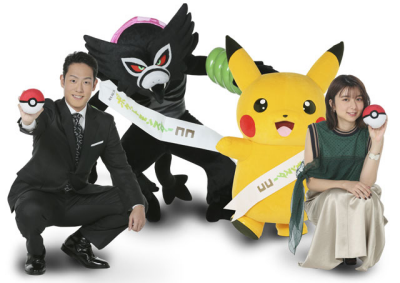 |
Mr. Yoshida is amazed; in this one room they have a pair of prestigious Japanese actors who have been in animation, TV, and on stage! The podcast host then turns his attention to the fact that Mr. Nakamura is wearing a black face mask and a surprisingly formal black suit. Today's a press day, the actor responds, and so he's all dressed up for the occasion, though he does add that his suit at least it has a bunch of little purple Pikachu patterns on it to give it that Pokémon feel. Ms. Kamishiraishi, on the other hand, is wearing what appears to be a very jungle inspired green dress. She also just happens to be sitting on a green sofa, making it look like she coordinated her outfit just for this interview.
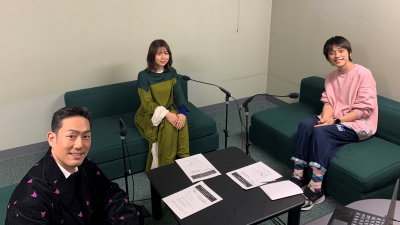 |
| Image
posted by the movie's official Twitter. From left to right:
Kankuro Nakamura, Moka Kamishiraishi, and Hisanori Yoshida. |
The podcast starts the episode by bringing up something surprising he just found out. Mr. Nakamura and Ms. Kamishiraishi play a father and son duo in this Pokémon movie and yet, somehow, today's podcast recording is the first time the two of them have ever been together in the same room! Well, for this particular Pokémon movie, anyway. They had met before while working on the Japanese historical drama Idaten: The Epic Marathon to Tokyo, even though they didn't end up having any scenes together. When it comes to animation voice-over work, however, this film was the first Pocket Monsters film for either one of them. Ms. Kamishiraishi had done one other animated film in the past (Mirai of the Future), at least, but this was Mr. Nakamura's first foray into the world of animation. Suddenly a thought pops into Mr. Yoshida's head; Ms. Kamishiraishi has played young boys in both the animated films she's appeared in, hasn't she? She played a boy in Mirai of the Future and she plays a ten-year-old boy in Pocket Monsters The Movie "Koko" as well. How about that! Ms. Kamishiraishi reasons that her voice not being all that high to begin with makes it fairly easy for her to get those types of roles, maybe. Once she actually gets cast, though...well, that's when the real work begins.
The podcast host then turns to Mr. Nakamura and tells us that this is the first time the two of them have met. "It's nice to meet you," Mr. Yoshida says to his guest. He starts off by asking the actor about a rumor he heard about Mr. Nakamura being a big fan of both manga and girls' idol groups. Is that true? Mr. Nakamura confirms that yup, guilty as charged! He's 39 years old now, and he's been reading Weekly Shonen Jump since the time he was an elementary school student. He used to read each issue cover to cover, even going so far as to read the authors' comments in the back, and so that's what got him into both manga and anime. If you do the math, Mr. Nakamura must have been in elementary school at around that time, so he was probably reading the ultra popular series Slam Dunk back then. Mr. Nakamura confirms that he was -- he used to read it while riding the Tobu Sano Line on his way to and from school when he was a junior high and high school student. All sorts of people were reading Jump on the train back then, from businessmen to students like himself, and he remembers one of the final chapters of Slam Dunk where a character who really didn't talk much (Kaede Rukawa) was forced to go one way, but then when he looked up he saw that Hanamichi Sakuragi was there, and so he made a 45 degree turn and passed the ball to Hanamichi so he could perform the game-winning slam dunk with his left arm. And as everyone cheered the two of them gave each other a high five. That high five scene was a two-page spread and he remembers getting to that part, closing the magazine, and quietly weeping to himself. Mr. Yoshida is surprised to see him get so worked up about this, even today...he really is a huge Slam Dunk fan, huh? Mr. Nakamura adds that he noticed other people on the train weeping when they got to that scene as well.
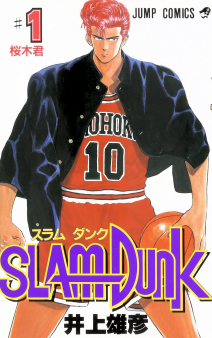 |
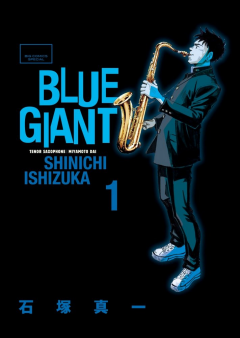 |
Mr. Nakamura says he eventually buys the graphic novel collections, of course, but he also prefers the larger size of the weekly magazines and so he ends up buying those as well. Even now? Yes, even now! Mr. Yoshida asks him what series he's enjoying these days, and he responds that one that's really stood out to him lately was Blue Giant. You wouldn't think manga would be a great medium for a music-based story but somehow, he says, he feels like he can actually hear the music being played as he reads the manga.
Now that Mr. Nakamura's had a moment to gush over a bunch of the manga he likes it's time to turn our attention to Ms. Kamishiraishi. Unlike with Mr. Nakamura, Mr. Yoshida has actually met Ms. Kamishiraishi before; in Japan they have this series of open calls set up for aspiring actresses known as the Toho "Cinderella" Audition, a talent competition set up by Toho held roughly every three or four years. The podcast host, Mr. Yoshida, was one of the emcees at the finals the year Ms. Kamishiraishi won, and he remembers interviewing the amazing sister duo -- Moka Kamishiraishi and her younger sister -- from the Kagoshima Prefecture of Japan. Ms. Kamishiraishi thanks the podcast host for everything he did back then; she wouldn't be where she's at today if he hadn't read her name out as the winner back then.
Did Ms. Kamishiraishi grow up with Pokémon? As an example, Mr. Yoshida turns to Mr. Nakamura and guesses that he would have been too old to have watched it when he was an elementary school student. The actor tells the podcast host that his guess is right; his younger brother (fellow kabuki actor Shichinosuke Nakamura II) and his future wife (film actress Ai Maeda) would have been the right age, but he himself was a bit older when Pokémon first came out. His younger brother used to bring his Game Boy to kabuki practice with him, and he heard that his wife would take her Game Boy to film shoots as well. So Mr. Nakamura was vaguely aware of Pokémon and just how big a phenomenon it was becoming. When he was a high school student he went and saw the first movie, Pocket Monsters The Movie "Mewtwo Strikes Back!, in theaters, and he remembers thinking how amazing Masachika Ichimura's performance as Mewtwo was in that film. So while he knew what Pokémon was, this first movie was his first direct encounter with the franchise.

Mr. Yoshida thinks it's interesting to hear from someone who was first introduced to Pokémon when they were a high school student as opposed to first getting into it when they were in elementary school. When he saw Mewtwo Strikes Back!, Mr. Nakamura continues, he thought Mr. Ichimura was just absolutely amazing -- his performance gave Mewtwo's sad story this sort of depth that only a veteran like he could deliver. The podcast host summarizes all this by saying that Mr. Nakamura was first introduced to Pokémon through the movies.
Ms. Kamishiraishi, on the other hand, was really young when she first came into contact with Pokémon. As alluded to earlier, she lived in Mexico from the time she was a first grader up until she was in third grade, and her classmates there in Mexico knew all about Pokémon and Pikachu and all that. The franchise became a sort of shared language between her and her Spanish-speaking classmates, a way for them to become friends with each other despite not speaking the same language. But she did have a Nintendo DS, and so she was able to trade Pokémon with her classmates regardless. The podcast host guesses Ms. Kamishiraishi must have been really popular with the kids at school since she came from the country where Pokémon originated, right? She guesses, but back then she didn't even really understand that Pokémon was a Japanese series. The fact that the main character didn't have a Japanese name like "Satoshi" over there was one reason, but she also recognized Pokémon as this extremely popular thing that everyone knew and so she figured it must have come from the U.S. Nothing that comes from Japan is ever that popular overseas, right? She continues to reminisce, stating that the first movie she ever saw in theaters was a Pokémon movie, she says. It was Pocket Monsters Advanced Generation The Movie "Pokémon Ranger and the Prince of the Sea, Manaphy," and it came out when she was a first grader in elementary school back in 2006. She saw (what she assumed was a Japanese dub of) the movie in Japan, and then a little while later she moved to Mexico. She couldn't believe how big Pokémon was when she arrived in North America; oh, you guys have it over here too?

So this year, Ms. Kamishiraishi got the offer to play the titular character Koko in Pocket Monsters The Movie "Koko." She was actually scared when she first got the offer! Mr. Nakamura laughs in agreement -- he was happy when he got offered the role of Zarude, of course, and as an anime fan he had always wanted to try his hand at doing voice-over work. But at the same time the fact that he liked animation as much as he does put that much extra pressure on him. It's a totally different feeling from doing historical dramas, of which he's also a fan. Ms. Kamishiraishi adds that, similarly, she was happy to get cast but felt nervous because she felt the huge sense of responsibility that comes with being in a Pokémon movie. The podcast host adds that for this movie in particular, the two of them had an even more difficult task than normal because they had to speak both Pokémon language and human language. The actors whose characters only speak Pokémon language -- like Sonansu -- have to work hard to convey their characters' emotions with a very, very limited vocabulary. But both Koko and Zarude have to do that in addition to speaking human language amongst themselves.
Another challenge this time around is that the actors all had to record their dialogue separately because of COVID-19. That's how, as they talked about earlier, they hadn't actually met face to face until this podcast recording. Who recorded first? Ms. Kamishiraishi said that she had Zarude's dialogue to go off of when she recorded so that must have meant that Mr. Nakamura went first. Zarude's voice actor adds that when he went into the recording booth, the other Pokémon's voices had already been recorded by that point. Mr. Nakamura recalls that when he was first in the booth for the pre-tests, he was so amazed to hear the Pokémon actually speaking on the screen in front of him that he missed his cue and they had to start again.
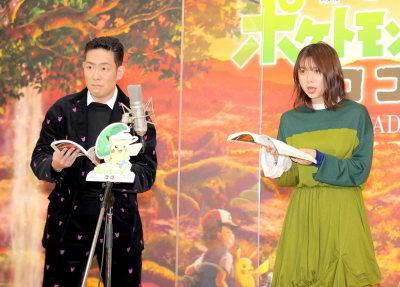 |
| Mr.
Nakamura and Ms. Kamishiraishi pose for a picture at a voice recording
event on November 28th, 2020. Photo Credit: Yahoo!
News |
Translation
Note: In Japan, certain
Japanese actors tend to be put in charge of dubbing over certain
Hollywood actors for every film they appear in. Kouichi Yamadera, in
particular, appears
in a lot of Japanese dubs. Mr.
Yamadera is the person who's almost always called upon to dub over
actors like
Eddie Murphy, Keanu Reeves, Adam Sandler, Will Ferrell, Jim Carrey, Tom
Hanks, Brad Pitt, and many, many others.
Mr. Nakamura would hear actors like Mr. Yamadera and think that they're so amazing, but...Mr. Yoshida thinks the Dada Zarude is really amazing too! Ms. Kamishiraishi agrees. She adds that his performance was so strong that when she heard Mr. Nakamura's voice the first time she thought of him as her father right away. Mr. Nakamura thanks his colleague but admits that he was really nervous. They had to record separately, as they said, and so he was worried about leaving behind a performance good enough that Ms. Kamishiraishi could then use to deliver the best performance she could. Mr. Yoshida marvels at how great Zarude is as a character; Zarude can only speak Pokémon language in the story of the film but, for the audience's sake, large portions of his dialogue are also spoken in human language.
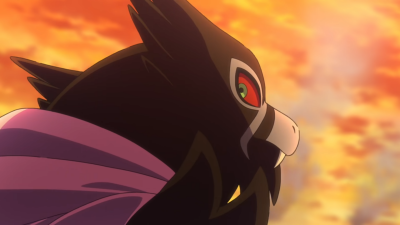 |
Did Mr. Nakamura go into the booth knowing how he wanted to portray the character? Or did he let the sound director Masafumi Mima decide which direction to take it? Mr. Nakamura credits the film's director, Tetsuo Yajima, and the sound director with shaping Zarude into the character it would become. Mr. Nakamura had the script and so he had an idea of what the character should be, of course, but more than that it was the character design of Zarude that informed the approach he took with the character. Did you have a different idea of what kind of character Zarude would be, Mr. Yoshida asks. Zarude's voice actor responds that the first thing he was told was that Zarude is always on high alert, ready to move at a moment's notice. Ms. Kamishiraishi adds that she was told the same thing about Koko; you never know what's going to happen out there in the jungle so make sure you sound like you're ready for anything. Mr. Yoshida remembers Mr. Mima telling them about this in a previous episode of the podcast -- they're animals out in the wild, he recalls, so they can never relax. Mr. Nakamura adds that he has to sound like he's ready to spring into action at any moment, even in the scenes where it's just him standing around talking.
Mr. Yoshida also recalls Mr. Mima talking about how the jungle setting provides them with a 360 degree space in which to play. It's not just two people talking each other from the same height; there are times when someone will be on the ground talking to someone high up in a tree, or when someone will be shouting at someone way on the other side of the jungle. Did you receive any special directions from Mr. Mima for those scenes? Mr. Nakamura confirms that yes, he did. This was his first time recording animation voice-over work so he took his script and stood in front of the monitor with the animation on it and would try his best to make it sound like there was some distance between him and the character he was talking to. But sometimes it just didn't sound right, and so Mr. Mima would ask him a series of questions. How large is the character you're speaking to? Where is he? What kind of environment are the two of you in during this scene? etc. Mr. Nakamura said the whole thing was a lot of fun, actually. Ms. Kamishiraishi then had to take Mr. Nakamura's performance as a Zarude, who's a wild animal who only lets down his guard for a select few, and act off that.
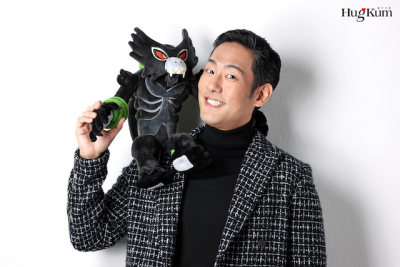 |
| Photo
Credit: HugKum |
With Koko, Ms. Kamishiraishi had to play a character who's both a human and a Pokémon, someone who's a sort of a halfway point between the two. It was really tough, she recalls. When she found out that the character she was playing is a human who was raised by Pokémon, she says, she was reminded of those stories of real life boys who had been raised by wolves. Those boys didn't use only words to form bonds with their parents and so she had to think about how to similarly portray this unique relationship. This role isn't something she'd ever be able to do in live action, of course; it's something she can only do because this is an animated film. Mr. Yoshida goes back to the point about the boy who was raised by wolves, adding that this was exactly the sort of thing that Maya Kitajima worried about in the famous manga series Glass Mask. As the others laugh, Mr. Yoshida reasons that Ms. Moka Kamishiraishi is more or less the same as the character Maya Kitajima, though she probably doesn't go to the extremes that the manga character did to prepare for her roles.
So what did Ms. Kamishiraishi do to prepare? Well, she had artwork of the character to go off of, and the script had a lot of detailed notes written throughout -- here's how the character will be moving in this scene, and here's the emotion you should feel at this part, etc -- and so she poured over all that to get a feel for the character. Mr. Yoshida's interviewed a lot of voice actors over the years and one thing he's heard over and over is that anime scripts all have really detailed notes like what she just described. Do scripts for live action productions not contain as many detailed notes? They don't, both Ms. Kamishiraishi and Mr. Nakamura confirm. Mr. Nakamura believes this is because the actors are the ones who decide the visuals of the film, with their movements and facial expressions and whatnot, while with (Japanese) animation the visuals are already pretty much set in stone before they even step into the booth. Having everything decided for you beforehand provides a refreshing and unique challenge, Ms. Kamishiraishi adds. There are some difficult parts to that as well, she admits, but there was also a lot of fun in seeing how simple things like changing your posture can affect the voice that comes out of your mouth. She would try to adopt the same poses Koko took, with his back arched a certain way, to get a performance that made the most sense. There were restrictions to this, of course -- she was in a studio with a microphone set in a certain position, after all -- but she would do things like bend her knees slightly and hunch over as if she's ready to take off at any minute, just like Koko.
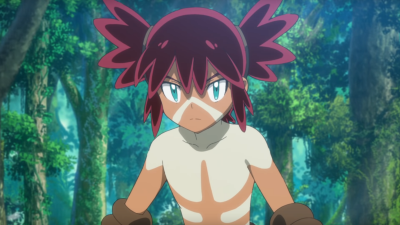 |
Mr. Nakamura is amazed; he did exactly the same thing! They really are like father and son! Mr. Yoshida believes that since Ms. Kamishiraishi recorded her dialogue after Mr. Nakamura recorded his that she learned a lot about the world of Pokémon from Mr. Nakamura's performance, even though the two of them were never in the same room together. Mr. Nakamura continues, saying he was told to stand a certain way by Mr. Mima and that thanks to this direction he was able to create sounds in his character's "default state" that he wouldn't have been able to if he was just standing normally.
Have you sat down and watched Pocket Monsters The Movie "Koko"? Mr. Nakamura answers that he's seen it but that, in principle, he doesn't tend to go back and rewatch the movies and shows he's been in. All that does for him is give him new things for him to nitpick, you know? So instead, he prefers to stand back and see how other people react to his performances. Ms. Kamishiraishi's the same way; whenever she watches something she's been in she always thinks "aw, I should have done this instead of that." Hearing recordings of her own voice was, at first, particularly difficult. But she also recognizes that she's just one part in this bigger production and so she wants to watch the movie a second time to really take in everyone else's performance without being hyper-focused on the work she herself did.
They have an idea of what moments in the story are supposed to make people cry and which parts aren't, right? Ms. Kamishiraishi says that yes, of course they do. Mr. Yoshida adds that this is one of the great things about Japanese animation; the actors and other artists involved all know exactly what buttons to push to control the audiences' emotions as the film goes on. OK, this is the part where we want them to cry, so we'd better give it our all. Kabuki stage plays are probably very similar, he adds.
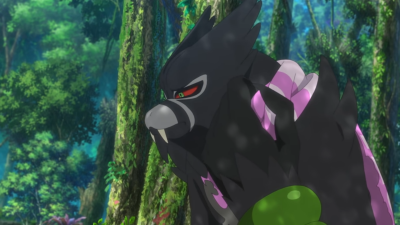 |
One of the strange things about Pokémon, Mr. Yoshida continues, is that it's able to evoke such strong, realistic emotions out of people even though it's about as far away from reality as you can get. He also figures that the two actors there are all cried out after working on this movie, right? Mr. Nakamura says that's not the case; he still cried when he saw the movie earlier. He can't give too much away because he knows there are people listening to this podcast who haven't seen the movie yet, but there's a part in the movie where Koko does something to help his Dada and Koko's facial expressions, combined with the scream Ms. Kamishiraishi's Koko gives out from deep within, really moved him to tears. Ms. Kamishiraishi adds that doing that scream made her voice give out. She adds that she recorded that while her voice was strained but that it actually ended up helping her performance because, as a woman, there are certain vocal strains and growls that she had to deliver that she wouldn't have been able to if she was at 100%.
Moka Kamishiraishi also tells the others about something Mr. Mima said to her that really stood out: "Girls tend to get angry from their heads while boys tend to get angry from their gut" (女の子は頭で怒って、男の子は腹で怒る). Mr. Yoshida reacts to this statement with a "woah..." Ms. Kamishiraishi thought this was brilliant and so when she was in the booth she tried lowering her center of gravity and letting out her anger from her belly. When she did all this, she found that the voice she produced was so different from what she usually does that she couldn't believe she was the one making it! Ms. Kamishiraishi is very thankful for the guidance Mr. Mima gave her; she wouldn't have been able to deliver the performance she did without it! She figures that Mr. Mima should get credit for about 50% of the way Koko's voice turned out.
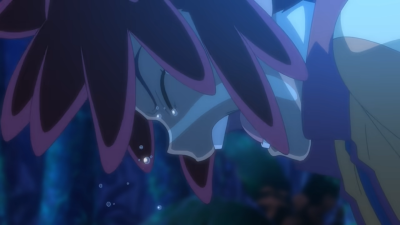 |
It's now about time to wrap up this episode so Mr. Yoshida asks his guests to give them a comment for the listeners who have seen the movie and for those who haven't seen it yet:
Kankuro Nakamura: "Kids have been growing up with Pokémon for the past 23 years, and for some kids this will be their first Pokémon movie ever. And this time around the story is one about the bonds between parents and...well, I have kids of my own, you see, and while I know what brings us together this movie gave me a chance to re-examine those bonds...and so I think this is a nice, well-done film. Also, even though 23 years have passed, I think Satoshi is a really cool kid. He's cool, he never gives up, and that's why Pokémon gather around him -- and humans as well...everyone gravitates toward him and I think you'll see that in this movie as well."
Mr. Yoshida says that Rica Matsumoto touched upon that point on this very podcast -- he encourages his guests to listen to that episode.
Next up are Ms. Kamishiraishi's comments:
Moka Kamishiraishi: "When I first saw this movie I thought that, on the whole, it really is a film aimed at adults. Kids can enjoy Pokémon movies too -- I really loved watching them when I was a kid, after all -- and they're something that kids can watch with their parents. But I hope adults go see this film as well. The themes are really deep and they made me think about what I will do if I ever become a parent myself. When looking at things through Koko's eyes I'm able to see where I, myself, have come from and where I'm going. The film depicts us searching for our own senses of identity, and it's a movie that really surpasses generations, and so I hope kids all the way up to adults go see this movie. I hope parents and children will watch this movie together and then hold hands on the way home from the theater. Or, if you're someone my age and you're too old to be doing kind of thing, then pick up the phone and call your parents. If this movie can create these kinds of opportunities to reconnect then that'll make me very happy."
Mr. Yoshida then states that the ending to Pocket Monsters The Movie "Koko" is really great. To see a child find his own path the way Koko does is the hope and dream of every parent, he thinks. He can't say too much more than that, but he thinks Koko is the kind of character that the kids watching the film will want to become friends with. The "cool Satoshi" and a Koko who we'd expect to reject the human world...this movie really does give us some great combinations!
Mr. Yoshida knows his guests have to get going so he thanks them for their time. Thank you, Kankuro Nakamura and Moka Kamishiraishi!

After the guests have left, Mr. Yoshida reflects on the podcast as a whole. They really did end their show with some high profile guests, didn't they? They were really easy to talk to, but the part that stands out to him the most are Mr. Mima's words: "Girls tend to get angry from their heads while boys tend to get angry from their gut." He guesses that's probably right; in his experience he doesn't use his head whenever he gets angry, but women do, and so he thinks it's amazing that Mr. Mima picked up on that.
Something else that stood out to him was both Ms. Kamishiraishi and Mr. Nakamura talking about how cool Satoshi is. Everything is connected to each other, isn't it? From all the guests he's had on, he saw that they all take pride in doing the best at whatever job they have but that they also all realize that this movie isn't just theirs; this movie belongs to everyone. He especially thought this when talking to one of the Executive Producers, Mr. Hidenaga Katakami, in last week's episode; you're part of a team and so you can't just do whatever you want.
Pokémon is made because everyone has poured their hearts and souls into it to make this festival of a film experience, and the next festival starts today, December 25th. There have been delays because of the novel coronavirus, of course, but the day is finally here. The movie theaters here in Japan are all taking steps to protect their patrons so the podcast host believes it should probably be safe to go to the movies again. Check how you feel, health-wise, and maybe leave your 90-year-old grandparents at home this time around, but if possible you should see Pocket Monsters The Movie "Koko" in theaters. As he mentioned before, the jungle setting of this film is something that should really be seen on the big screen, and this musically jam-packed film is something you don't want to experience on TV speakers.
As a radio DJ, Mr. Yoshida continues, one of the most fun parts of his job is being able to talk to celebrities and then finding ways to use the information he finds out in other parts of his life. He learned a lot from doing this podcast and hopes to be able to bring up some of the anecdotes he heard in future projects of his. Mr. Yoshida thanks everyone who listened, whether it was just for one episode or if they listened to them all of them. This has been Nippon Broadcasting System's Hisanori Yoshida, and if you liked this podcast then check out some of the other radio shows he appears on regularly. Thank you!
| Previous
Episode |
Back to the page for
Pocket Monsters The Movie "Koko" Supporters' Podcast - "The Movie Secrets We Want to Tell You"
Pocket Monsters The Movie "Koko" Supporters' Podcast - "The Movie Secrets We Want to Tell You"
Found an error? Spot an omission? Please help me keep this page current and error-free by e-mailing me with a description of the error or omission.


